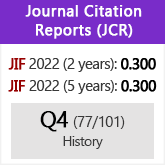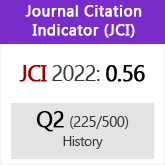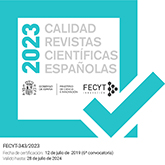Ernesto Quesada, a Positivist Traveler. Between Cosmopolitism and Scientific Patriarchy
DOI:
https://doi.org/10.3989/chdj.2012.m107Keywords:
Ernesto Quesada, positivism, cosmopolitism, travel literature, Russia, Eastern CountriesAbstract
Ernesto Quesada (1858-1934) was a renowned and prolific intellectual of the 1890 generation in Argentina. With his father, Vicente Gaspar Quesada, he co-directed Nueva Revista de Buenos Aires between 1863 and 1871. Sociologist, Professor, Germanist and publicist, Quesada was a well-known representative of positivism. A true cosmopolitan, Quesada stood out as a traveler among his peers who were used to extensive journeys, especially in the west. He embarked on unconventional paths for the Argentineans of his time; in 1884 he traveled to Russia and around the world in 1913. These experiences are registered in A Winter in Russia (1888) and Around the World (1914), texts that have not been subject to critique until now. There are thirty years of intense intellectual work from one book to the other. We will study them in the light of his work and time, when a new vision about the Middle and Far East -independent from Europe- was born in Argentina. This contributed to create the model for a modern liberal state for the Argentinean nation. This timespan goes from the federalization of Buenos Aires (with the founding of La Plata as provincial capital in 1882) to the opulence of the centenary (1910).
Downloads
References
Aldao, Carlos A. (1914) A través del mundo. 5th enlarged edition. Librería del Colegio [imprenta Ed. Garnier, Chartres], Buenos Aires.
Bujaldón de Esteves, Lila (2006) Historia de la Germanística Argentina. Anuario Argentino de Germanística, Anejo I. Asociación Argentina de Germanistas, Buenos Aires.
Cané, Miguel (1994) En viaje [1884]. Editorial Claridad, Buenos Aires. PMCid:262959
Gasquet, Axel (2007) Oriente al Sur, el orientalismo literario argentino de Esteban Echeverría a Roberto Arlt. Eudeba, Buenos Aires.
Gasquet, Axel (2012) “Omar Khayyam's Epicureanism: the Spanish Translations of Rubaiyats (1904–1930)”. In Peripheral Transmodernities: South-to-South intercultural dialogues between the Luso-Hispanic World and “the Orient”, edited by López-Calvo, Ignacio. Cambridge Scholars Publishing, Newcastle, pp. 157–177.
Gasquet, Axel (2013) “Panthéisme et orientalisme chez Joaquín V. González (Kabir, Tagore et Khayyam)”. In Les Orients désorientés, décronstruire l'orientalisme, edited by Dubost, Jean-Pierre and Gasquet, Axel. (in press).
López, Lucio Vicente (1869a) “Ramayana. Poema sánscrito de Valmiki”. Revista de Buenos Aires, XX (78): 208–223. http://archive.org/stream/larevistadebueno20buenuoft#page/208 [accessed 15/November/2012]
López, Lucio Vicente (1869b) “Ramayana. Poema sánscrito de Valmiki”. Revista de Buenos Aires, XX (79): 418–427. http://archive.org/stream/larevistadebueno20buenuoft#page/418 [accessed 15/November/2012]
Noé, Julio (1919) “Prefacio to Carlos Muzio Sáenz-Peña”. In Samsara (poemas cortos). Imprenta Mercatali, Buenos Aires.
Obligado, Pastor S. (1873) Viaje a Oriente. De Buenos Aires a Jerusalén. Imprenta Americana of Rouge, Dunon and Fresné, Paris.
Quesada, Ernesto (1888) Un invierno en Rusia. Primera parte, de Berlín a Kursk. Jacobo Peuser, Buenos Aires.
Quesada, Ernesto (1895) La política chilena en el Plata. A. Moen, Buenos Aires. http://www.archive.org/details/lapolticachilen02quesgoog [accessed 15/November/2012]
Quesada, Ernesto (1899) La política argentina respecto de Chile (1895-1898). A. Moen, Buenos Aires. http://www.archive.org/details/lapolticaargent00quesgoog [accessed 15/November/2012]
Quesada, Ernesto (1902) La política argentino-paraguaya. Librería Bredahl, Buenos Aires. http://www.archive.org/details/historiadiplomt00quesgoog [accessed 15/November/2012]
Quesada, Ernesto (1910) La enseñanza de la Historia en las universidades alemanas. Facultad de Ciencias Jurídicas y Sociales, UNLP, La Plata.
Quesada, Ernesto (1914) Una vuelta al mundo. Sociedad Cooperativa Limitada “Nosotros”, Buenos Aires.
Quesada, Ernesto (1915a) El “peligro alemán” en Sud América. Offprint of Revista Argentina de Ciencias Políticas, IX: 75. Talleres Gráficos de Selin Suárez, Buenos Aires.
Quesada, Ernesto (1915b) La legislación inmobiliaria tunecina. Academia de Derecho y Ciencias Sociales, Buenos Aires.
Quesada, Ernesto Quesada (1916) El nuevo panamericanismo y el Congreso Científico de Washington. Ministerio de Agricultura de la Nación, Buenos Aires.
Quesada, Ernesto (1919a) Primera Conferencia Panamericana, Washington, 2/10/1889–19/4/1890. Imprenta Schenone, Buenos Aires.
Quesada, Ernesto (1919b) La evolución del panamericanismo. Ministerio de Agricultura de la Nación, Buenos Aires.
Quesada, Ernesto (1923) El Paraguay y la política brasilero-argentina. Talleres Gráficos Araujo, Buenos Aires.
Rivarola, Rodolfo (1917) Filosofía, Política, Historia. Lecturas en la Facultad de Filosofía y Letras. Librería La Facultad de Juan Roldán, Buenos Aires.
Roig, Arturo Andrés (1972) El espiritualismo argentino entre 1850 y 1900. Editorial José M. Cajica, Puebla.
Soler, Ricaurte (1968) El positivismo argentino. Paidós, Buenos Aires. PMCid:1991903
Traverso, Enzo (1996a) Pour une critique de la barbarie moderne. Éditions Page Deux, Cahiers libres, Lausanne.
Traverso, Enzo (1996b) Los marxistas y la cuestión judía. Ediciones del Valle, Buenos Aires.
Weinberg, Robert (1992) “The Pogrom of 1905 in Odessa: A Case Study”. In Pogroms: Anti-Jewish Violence in Modern Russian History, edited by Klier, John D. and Lambroza, Shlomo. Cambridge University Press, Cambridge-New York, pp. 248–289.
Wilde, Eduardo F. (1892) Viajes y observaciones. Imprenta de La Prensa, Buenos Aires. http://archive.org/details/viajesyobservaci01wild and http://archive.org/details/viajesyobservaci02wild [accessed 15/November/2012]
Wilde, Eduardo, F. (1899) Por mares i por tierras. Jacobo Peuser, Buenos Aires. http://archive.org/details/pormaresportierr00wild [accessed 15/November/2012]
Published
How to Cite
Issue
Section
License
Copyright (c) 2012 Consejo Superior de Investigaciones Científicas (CSIC)

This work is licensed under a Creative Commons Attribution 4.0 International License.
© CSIC. Manuscripts published in both the printed and online versions of this Journal are the property of Consejo Superior de Investigaciones Científicas, and quoting this source is a requirement for any partial or full reproduction.All contents of this electronic edition, except where otherwise noted, are distributed under a “Creative Commons Attribution 4.0 International” (CC BY 4.0) License. You may read here the basic information and the legal text of the license. The indication of the CC BY 4.0 License must be expressly stated in this way when necessary.
Self-archiving in repositories, personal webpages or similar, of any version other than the published by the Editor, is not allowed.

















